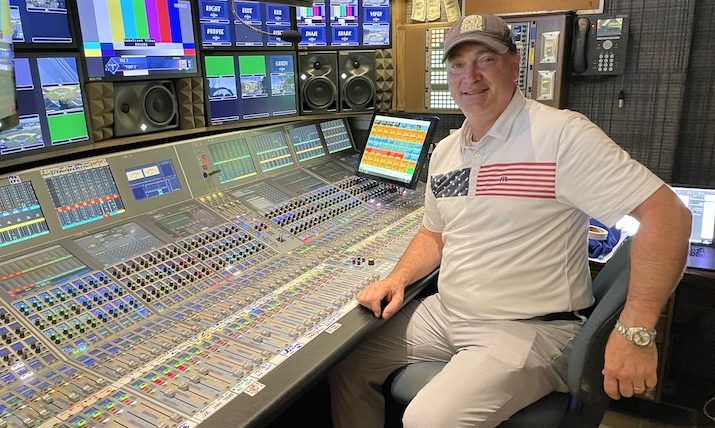Fox Sports’ World Series Coverage Offers Aural Drama
A1 Joe Carpenter brings a cinematic ear to the October Classic
Story Highlights
The World Series had its Saving Pvt. Ryan moment. Actually, there were several of them: momentary audio vignettes that evoked the remarkable aural isolation of Capt. John Miller (played by Tom Hanks) as he experiences Normandy Beach on D-Day: the tumultuous anarchy around him suddenly contracts into near silence, replaced by a high-pitched tinnitus-like whine that seems to take him out of time and place.
When the Philadelphia Phillies were winning their Game 3 7-0 wipeout of the Houston Astros — who ultimately won the Series in Game 6 — with a barrage of five home runs, Fox Sports A1 Joe Carpenter was making a moment of his own. As Phillies slugger Bryce Harper approached the plate, Carpenter suddenly widened the surround faders on the raucous Citizens Bank Park crowd, making a broader path for the channels of the three parabolics around the home-plate area, picking up Harper’s walk-up music. With only a hint of crowd sound and some sparse announcer commentary left in the mix, it created an intimacy unlike any usually found in a noisy tentpole game, where crowd-noise ambience is usually nonstop. For a few seconds, it was just the viewer and Bryce, walking together toward the plate, listening to “Flower” by Moby.

Fox Sports’ Joe Carpenter: “I was trying to accentuate the essence of being there with the batter as they walked up to the plate.”
Then, like the war crashing back around Capt. John Miller, the 46,000-plus fans in the park were there again, rattling the television speakers as Harper put the bat on his left shoulder. It was a little dream moment, courtesy of some innovative and creative audio mixing.
“For lack of a better word, I was going for a cinematic-type moment, a dramatic moment,” recalls Carpenter. “I was trying to accentuate the essence of being there in that place, that moment with the batter as they walked up to the plate.”
Carpenter made this move several times during the Series, picking his moments judiciously: only for hometown heroes and often at critical junctures in a game, when the contrast between noise and sudden quiet would be most apparent. Not every moment was as intimate as others: announcers, who weren’t in on the experiment, often chattered through it. But the concept was clear and quite effective, and it underscored the narrative present in every sports game or match on television: in the end, it’s just the viewer and the athlete, heading toward an appointed place and time, to see what will happen.
“It’s an extension of what we always try to do, which is put the viewer in the game,” says Carpenter. “This was about as deep in it as you could get.”
